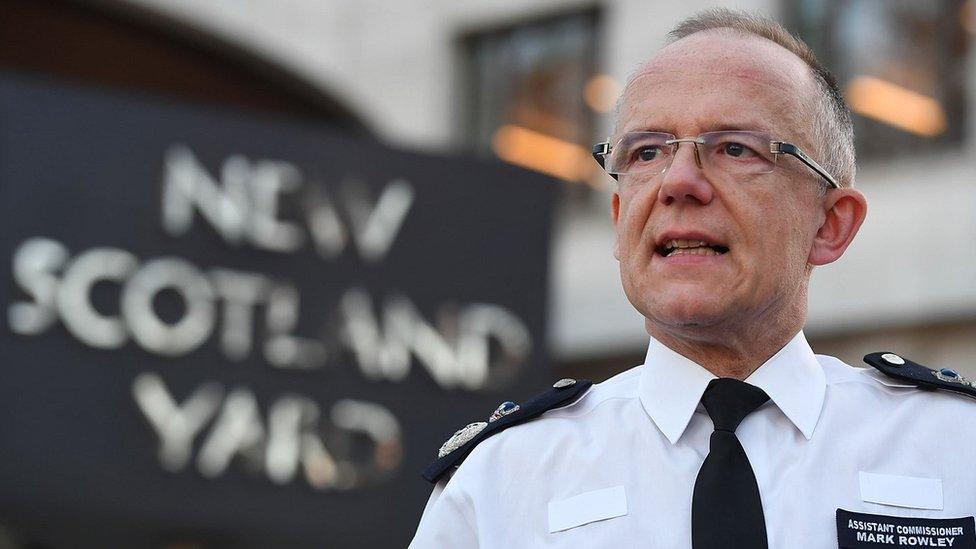Met Police: London homicide figures fall in 2022
- Published
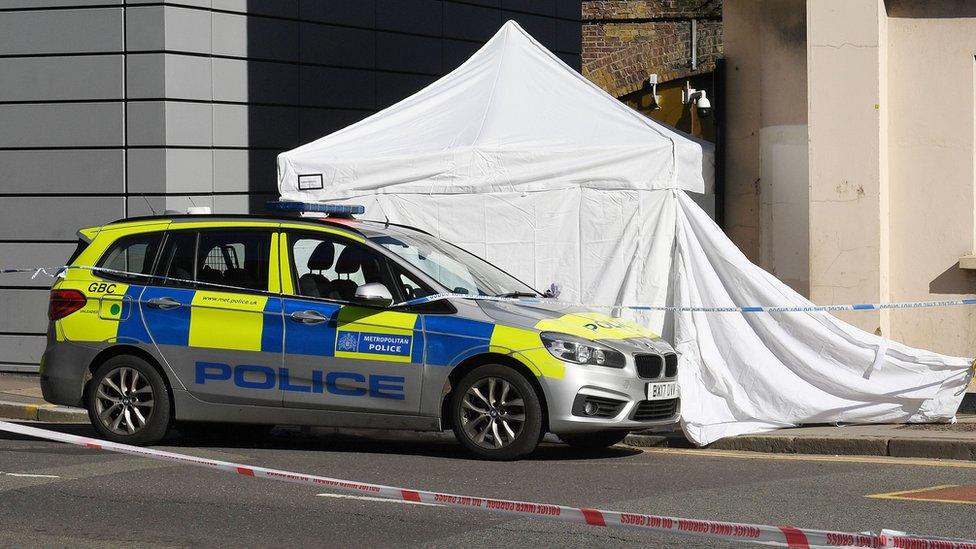
Of the 109 homicides in 2022, nine of those killed were shootings, while 69 were fatal stabbings
The number of homicides in London fell in 2022 while teenage killings were halved, the Met Police has revealed.
There were 109 homicides in the capital last year, down from 132 in 2021 and the lowest figure since 2014, police figures show.
Of those deaths, 14 were teenagers, down from 30 the previous year.
Met Police Commissioner Sir Mark Rowley said each death was "one too many", as the force vowed to tackle violence affecting youngsters.
Of the 109 homicides in 2022, nine of those were shootings, while 69 were fatal stabbings.
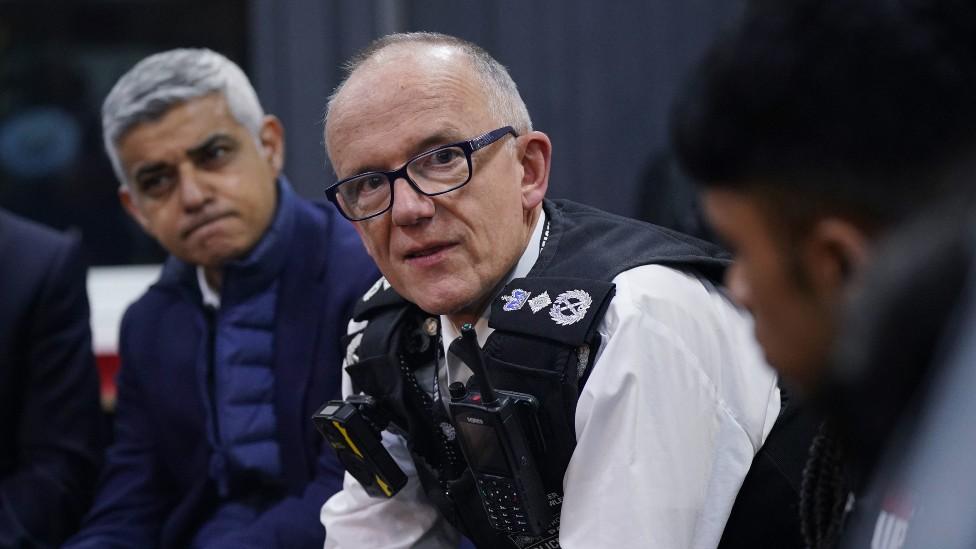
London mayor Sadiq Khan and Sir Mark visited a boxing gym which was set up to provide young people with a path away from crime
Speaking on Thursday during a visit to Box Up Crime, a boxing gym in Ilford, east London, which was set up to provide vulnerable young people with a path away from crime, Sir Mark vowed to bring offenders to justice.
"Although the number of homicides fell last year, we are not complacent," he said.
"Each and every homicide is devastating - these are victims, not just statistics.
"They all have families, friends and loved ones that were left behind when their lives were tragically cut short."
Mayor of London Sadiq Khan, who was also on the visit, said making London safer for everyone was his top priority and while homicide rates had fallen, the "level of violence remains too high".
The figures were released as the Met said it was increasing patrols in areas where children had been robbed of mobile phones and expensive clothing while on their way home from school, to help tackle crime affecting youngsters.
The force revealed recent figures showed that in Ilford more than a third of robbery victims were aged 18 or under.
Sir Mark said: "We're the police, we can suppress violence, we focus as hard as possible on arresting the most dangerous people... but we need partners like this to work with who can grab those kids at the right moment in their life and turn it around and give them purpose."
The force also revealed there had been 71 arrests for robbery across London since November.
"London is a fantastically safe global city. Of course no city's perfect, but if you look at crime rates... it's a safe place to live and work and enjoy yourself," the commissioner said.

Analysis
By Sonja Jessup, BBC London home affairs correspondent
Despite the fall in the number of teenagers being killed on the capital's streets, the Metropolitan Police Commissioner and the mayor recognise there's much more to do to keep young people safe.
For Sir Mark Rowley, that means targeting resources: arresting the drugs gangs who he says are fuelling much of London's violence and putting more local police patrols in robbery hotspots.
But he said the solution also lay in community projects such as the boxing club in Ilford, which can provide early diversions for young people at risk of being drawn into crime.
This is part of the mayor's "public health approach", which looks at tackling the underlying causes of offending. Both leaders believe police need to be more involved in communities, and in schools, but that won't be welcomed by everyone.
Scandals such as the strip-search of black schoolgirl Child Q by officers have damaged trust. Tactics such as stop-and-search, which both the commissioner and the mayor say are a vital tool in taking weapons off young people, are also controversial.
The challenge will be how officers can work alongside local communities and rebuild trust, while at the same time using those tactics which they say are needed to tackle dangerous criminals.

Sir Mark was also asked about his plans to rebuild public trust in the force following a string of high-profile convictions of officers for serious offences.
He said: "I have got tens of thousands of men and women who are fantastic people, who care and want to make a difference.
"Sadly I've got hundreds I need to sort out and who shouldn't be in the organisation and as we do that you'll hear more.
"But I've got many, many more people who care about Londoners than some of those awful individuals that should never have been police officers.

Follow BBC London on Facebook, external, Twitter , externaland Instagram, external. Send your story ideas to hellobbclondon@bbc.co.uk, external
Related topics
- Published31 December 2022
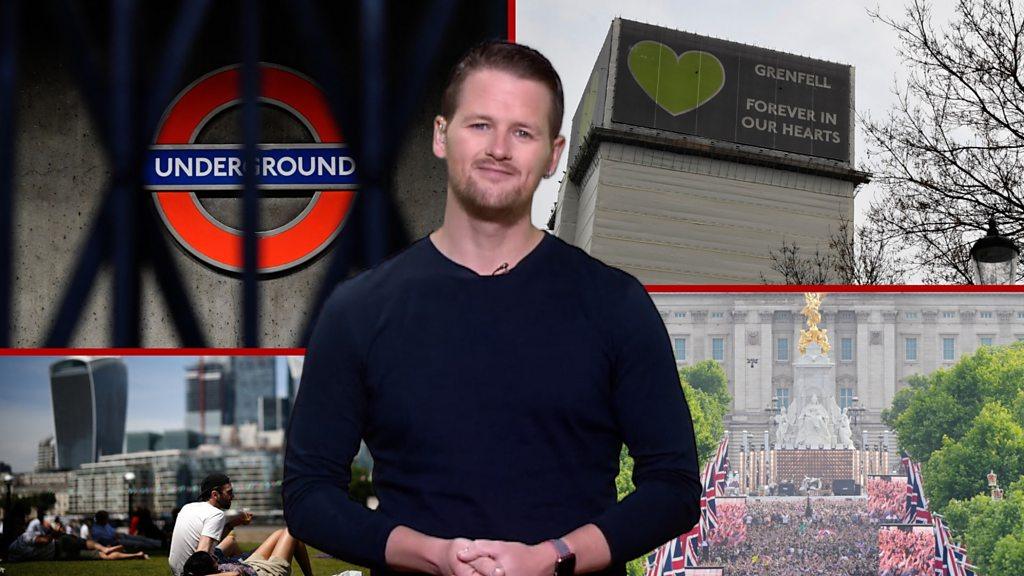
- Published21 December 2022
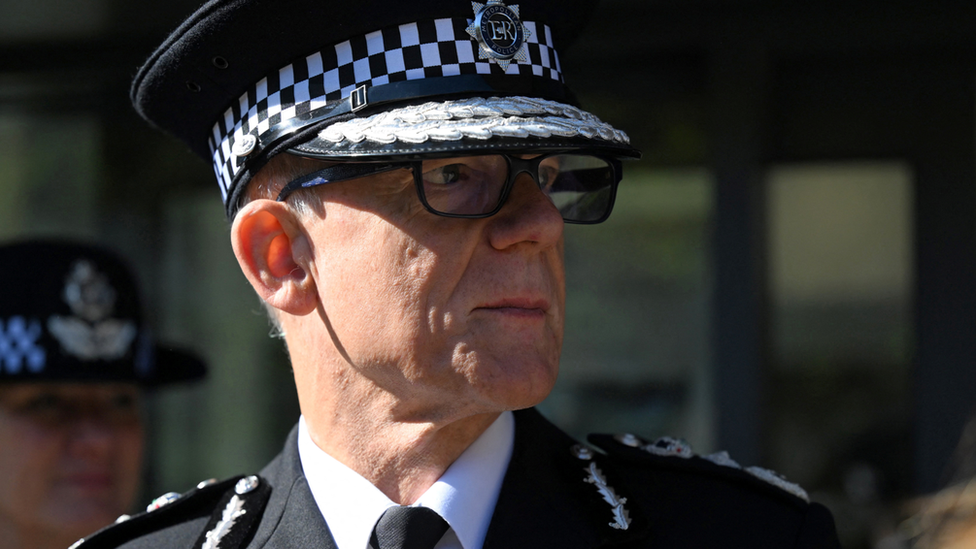
- Published12 September 2022
